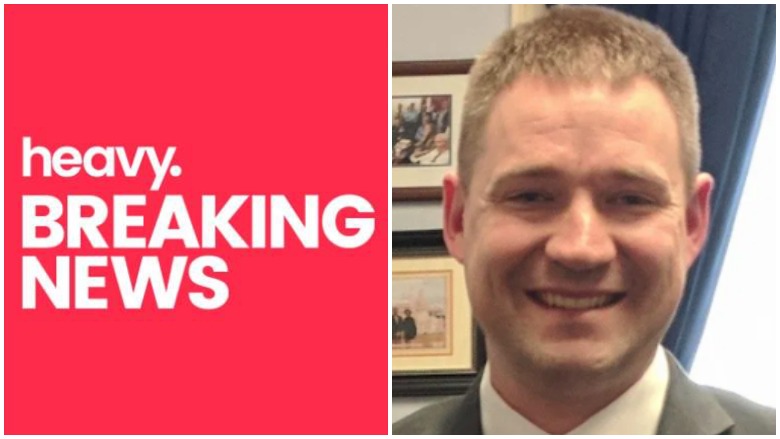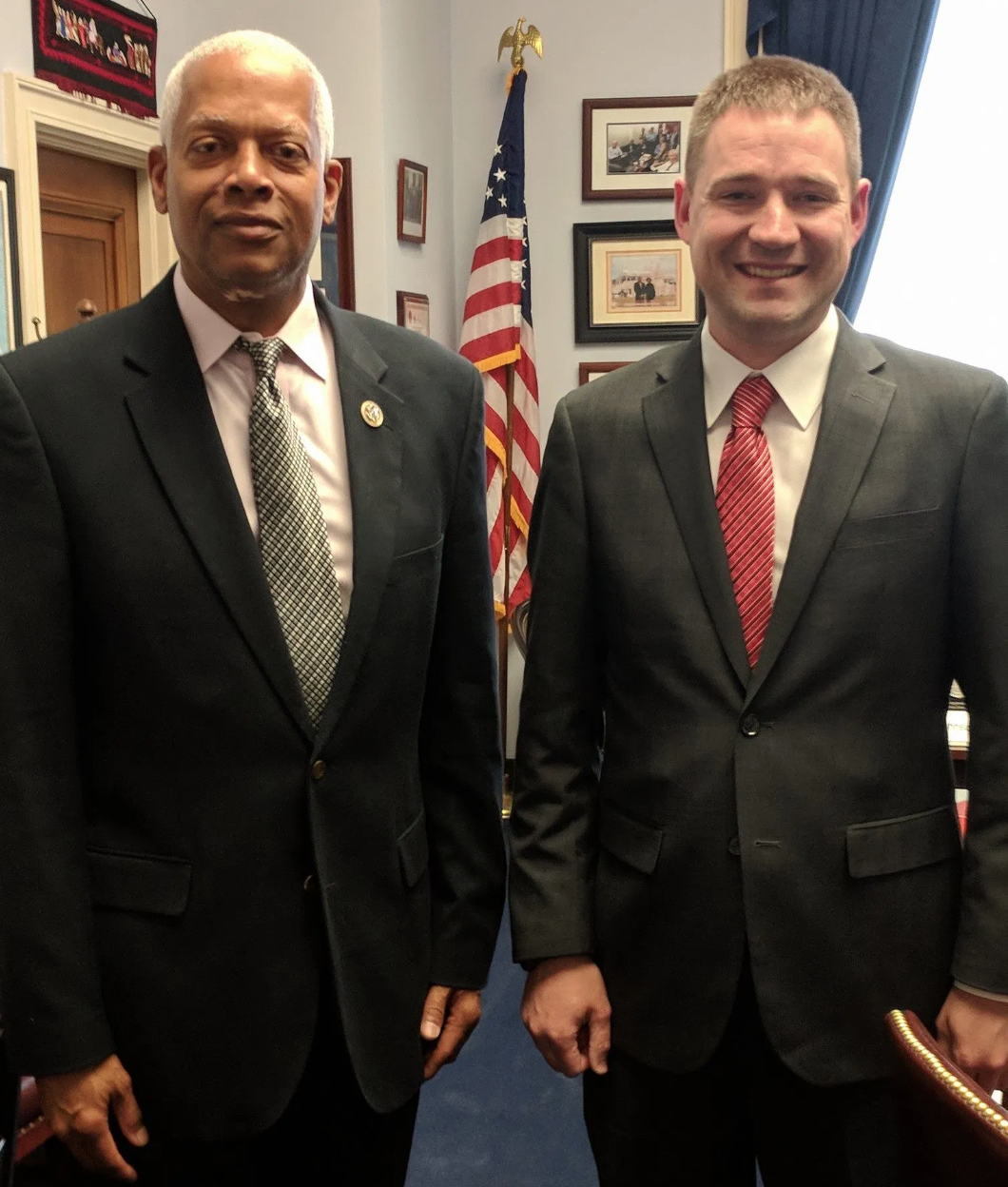
MattColvin.com
Matt Colvin is the third-party Amazon merchant from Tennessee who stockpiled approximately 18,000 bottles of hand sanitizer at the beginning of the U.S. coronavirus outbreak with the intention of selling them on the website.
Colvin quickly sold 300 bottles for $8 to $70 apiece, which is far beyond the normal cost for a bottle of hand sanitizer. But the day after those sales, Amazon suspended his account on the basis that his prices violated the website’s policy (more on that below).
That left Colvin with 17,700 hand sanitizer bottles he couldn’t sell online. He told the New York Times, “It’s been a huge amount of whiplash. From being in a situation where what I’ve got coming and going could potentially put my family in a really good place financially to ‘What the heck am I going to do with all of this?'” He has since donated the supplies.
Heavy has reached out to Colvin via email for further comment. We have not heard back.
Here’s what you need to know.
1. The Tennessee Attorney General Ordered Matt Colvin & His Brother Noah to Stop Selling Medical Supplies & Has Opened an Investigation
Matt Colvin has received a sharp backlash on social media since coming forward about his hand sanitizer activities. Many online commenters have called him and his brother Noah selfish for emptying stores and preventing other people from buying the supplies at retail prices.
But Colvin is facing much more than just online rage. The Tennessee Attorney General’s Office has ordered the Colvin brothers to stop selling any medically-related products and has opened an investigation.
AG Herbert H Slatery issued a statement that was published by local NBC affiliate WSMV-TV: “We will not tolerate price gouging in this time of exceptional need, and we will take aggressive action to stop it. During this pandemic, we ask that you report suspicious activity to the Division of Consumer Affairs and refrain from threatening or hostile communication with individuals or businesses you may suspect are price gouging. Our team will review complaints closely and we are prepared to act to protect Tennesseans.”
2. Colvin Said He Was Not Sorry For Purchasing All of the Hand Sanitizer Bottles But Has Since Donated Them
Matt Colvin has argued that his actions did not amount to price-gouging, despite Amazon’s reaction. He argued to the New York Times that online buyers have to understand that he has to shoulder costs related to packaging and shipping the items, as well as the fee he has to pay Amazon for using the site.
Colvin and his brother cleaned out supplies at area stores in early March. WCRB-TV reporter Hunter Hoagland asked Colvin whether he felt sorry. After pausing for several seconds to think about it, Colvin responded that he was not sorry.

MattColvin.com
But Colvin has since donated the supplies. His website, MattColvin.com, which used to include blog posts and contact information, now features only a white screen. On March 15, it included a one-sentence message: “The Hand Sanitizer in the NYT story is being donated to a local church and first responders tomorrow.”
Later in the day, Colvin updated the message: “As of today 3/15/2020 all items referred to in the NYT article have been donated to a local church.”
Colvin also appeared to change his tune on March 15, in regards to whether he felt bad about stockpiling hand sanitizers and antibacterial wipes. He told the New York Times in a follow-up interview, “When we did this trip, I had no idea that these stores wouldn’t be able to get replenished… It was never my intention to keep necessary medical supplies out of the hands of people who needed them. That’s not who I am as a person.”
As referenced above, Heavy reached out to Colvin via email for further comment but he has not responded.
3. Matt Colvin & His Brother Went Store-to-Store & Bought Every Hand Sanitizer Bottle Available At the Beginning of March
The number of confirmed coronavirus cases in the United States has spread quickly in a short amount of time. On March 14, the director of the National Institute of Allergy and Infectious Disease, Anthony Fauci, warned the U.S. has “not reached our peak” and that Americans should expect more cases and more deaths before the situation improves.
Back on March 1, most Americans may not have seen this coming, or at least did not predict how dramatically it would impact daily lives. But Matt Colvin and his brother Noah took action after it was announced the first American coronavirus death had been confirmed in the Seattle area. A man in his 50s, with underlying health conditions, died on February 29. A second death was confirmed within 24 hours.
The Colvin brothers started by buying all of the available hand sanitizer bottles at various stores in Chattanooga, Tennessee. They told the New York Times Noah Colvin then drove more than 1,300 miles across Tennessee and Kentucky and stocked a U-Haul truck filled with hand sanitizer and antibacterial wipes. Matt Colvin, meanwhile, got ready to start selling on Amazon.
He had already begun capitalizing on coronavirus fears before the virus spread in the U.S. Colvin told the Times that in February, he purchased 2,000 “pandemic packs” containing face masks and sanitizer for $3.50 apiece and then resold them for about $50 on Amazon.
4. Amazon Blocked Seller Accounts & Removed Thousands of Listed Items That Were Selling For Artificially Inflated Prices
As concerns about the coronavirus spread, Americans descended on grocery stores and pharmacies to stock up on supplies. Images of long lines and empty store shelves were shown on local and national networks and on social media.
At the same time, online prices began to skyrocket as well as people struggled to find items such as masks, disinfectant products, and hand sanitizers at their corner stores. For example, Business Insider reported that a two-pack of Purell was going for as high as $119 on Amazon.
Amazon has since intervened and removed those types of items, with their shocking sticker prices, from the website. The company explained in a blog post that it was taking its role amid the coronavirus outbreak seriously.
“We believe our role serving customers and the community during this time is a critical one, and we want to make sure people can get the items they need, when they need them. People may shop online at a greater rate due to the way COVID-19 spreads, so we are working to ensure that demand is met and, as always, if anything changes with our ability to meet a customer promise we will communicate directly with the impacted customer.
We’re also working to ensure that no one artificially raises prices on basic need products during this pandemic and have blocked or removed tens of thousands of items, in line with our long-standing policy. We actively monitor our store and remove offers that violate our policy.”
Amazon’s fair pricing policy includes the following language: “Amazon regularly monitors the prices of items on our marketplaces, including shipping costs, and compares them with other prices available to our customers. If we see pricing practices on a marketplace offer that harms customer trust, Amazon can remove the Buy Box, remove the offer, suspend the ship option, or, in serious or repeated cases, suspending or terminating selling privileges.”
5. Matt Colvin Previously Served In the Air Force & Now Focuses On Ecommerce Full-Time

MattColvin.com
Matt Colvin is a military veteran. He previously served in the Air Force as a technical sergeant, per the New York Times. According to the website for his company, “Speedy Items,” Colvin served for more than ten years. He wrote in the bio section that he was “medically retired” but did not go into detail about the injuries he may have sustained.
Colvin said that he focused on e-commerce as his full-time career. He wrote that he sold his first item online when he was 11 years and “have been fascinated with the power of the internet to drive commerce ever since.”
Colvin is involved with AFTA Internet Sellers, a subset of the American Free Trade Association. The group was launched to protect third-party sellers against accusations of infringement or intellectual property violations.
According to its website, AFTA Internet Sellers’ goals include the ability to “work with Amazon and other platforms to streamline processes and make those policies more transparent to better enable continued sales and compliance by valuable third-party sellers” and “work with legislators to craft legislation to eliminate infringement claims against Internet Sellers who offer genuine branded products with post-sale warranty and servicing options other than those offered directly by the rights owner or manufacturer itself.” The group also wants to work with legislators to guard against sellers who try to profit from counterfeit or illicit items.
Colvin went to Capitol Hill in April 2018 to meet with lawmakers on these issues. According to Colvin’s personal website, he and three other AFTA members attended an event with Senators Lamar Alexander and Bob Corker of Tennessee, spoke with House Judiciary Committee staff members, met with a legislative assistant for then-Senator Bill Nelson of Florida, and met with Customs & Border Protection.
Colvin also shared a photo alongside Congressman Hank Johnson of Georgia, the only lawmaker to meet with the group on this trip. Colvin wrote, ” Our appointment was for thirty minutes but Congressman Johnson (as well as two members of his staff) spent well over an hour talking to us about the concerns that we sellers have about ‘bully brands’ who are abusing Copyright/Intellectual Property laws to restrict the ability of ecommerce sellers like ourselves to provide legitimate products to the consumer.”
Colvin is married to wife Brittany and has two children. His baby son, Logan, was pictured in the original New York Times story before it was removed. Colvin also has a young daughter named Kimberly. According to Colvin’s Facebook page and a search of online records, the family is based in the city of Dayton, Tennessee, which is located about 40 miles north of Chattanooga.

